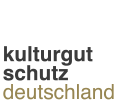Instruments for securing private loans
Institutions responsible for preserving cultural objects depend on the willingness of private lenders based in Germany and abroad to loan their property and entrust it to the institution in question for a shorter or longer period of time. The German Act on the Protection of Cultural Property (Kulturgutschutzgesetz, KGSG) contains various provisions that take particular account of the interests of private lenders and serve to alleviate the (unfounded) concerns regarding the intended purpose and regulatory substance of the Act that were voiced during the legislative procedure.
In particular, these provisions respond to the question of whether loans should be eligible for entry in a register of cultural property of national significance. Since its entry into force in 2016, the Act on the Protection of Cultural Property has contained various provisions that benefit lenders in this connection:
- The right to apply to enter cultural property in a register of cultural property of national significance, previously granted to museums under the regulations adopted by certain Länder, has been repealed in its entirety.
- As a fundamental principle, works by living originators or creators may be entered in a register only with their approval. This facilitates the loaning of works of contemporary art.
- Subject to the requirements outlined in Section 14 (7) KGSG, owners of cultural objects may apply for the competent authority to establish in a binding manner that the criteria for entry in a register of cultural property “of national significance” pursuant to Section 7 (1) KGSG are not fulfilled. This is intended to prevent a situation in which owners become unwilling to exhibit their cultural property publicly for fear that the authorities could be alerted to the existence of these works and initiate proceedings for their entry in a register. The special provisions of Section 10 (7) KGSG apply to loans from abroad and provide the same assurance for the duration of the loan.
In addition, private lenders that loan cultural objects to institutions responsible for preserving cultural property which largely rely on government funding can request for the special protection status of “national cultural property” to be conferred upon their loan; this status can be revoked at any time. If the loaned object is subsequently lost, it will be eligible for the same protection under EU and international law as the objects within the institution’s own holdings.
Further information can be found in the section on Collectors.

